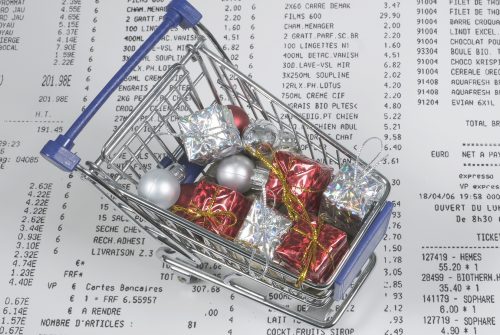Festive trading provides welcome respite for hard-pressed retailers

The festive trading season offered a welcome respite for many retailers, but they warn that harder times are round the corner for 2023.
Companies are beginning to provide updates on the so called ‘golden quarter’ when many enjoy their busiest trading period on the run up to Christmas.
This year has been extremely testing for retailers as the cost of living crisis, soaring energy costs and rampant inflation all took their toll on shoppers’ disposable incomes.
However, new figures show pockets of hope for some sectors.

Albert’s Schloss in Manchester
Mission Mars, the Manchester-based hospitality group with outlets across the North and Midlands – including the Albert’s Schloss, Albert’s Schenke, and Rudy’s pizza brands – reported a 69% year-on-year increase in revenues over the 13 week period to January 1, 2023, with sales hitting £16m during the quarter.
The portfolio benefited from the recent opening of its latest Albert’s Schloss bar and restaurant in Liverpool’s Bold Street shortly before Christmas, as part of a £3m investment. Six new Rudy’s Pizza Napoletana openings also contributed to the sales surge.
Focusing specifically on the Christmas period of November 28, to January 1, 2023, group like-for-like sales were up 26% against the same five week period in the prior year. This growth was driven by record sales in both brands of the business.
Overall Rudy’s revenue grew by 86% in the Christmas period, driven by organic growth and new venues performing strongly. The nine like-for-like pizzerias delivered 37% boost to revenue growth.
The three Albert’s Schloss venues saw revenues grow to £4.3m for the five week period, an increase of 104% on the prior year. Albert’s Schloss Manchester delivered like-for-like growth of 29%.
Mission Mars chief executive, Roy Ellis, said: “Despite numerous external challenges, our team members have helped the group deliver an industry-leading Group Guest Experience score of 73.7% for the quarter, an increase of 1.2% versus the same period in the prior year.
“Strong trading across all venues for a sustained period of time provides us with confidence that the Albert’s Schloss brand and Rudy’s Pizza Napoletana brand are well set to continue to deliver growth and are likely to trade extremely well in all parts of the UK. We continue to search for the best locations to continue our growth with four new Rudy’s and one new Albert’s Schloss currently in legals anticipated to open in 2023.”
Another established national brand, St Annes-based family-owned jeweller, Beaverbrooks, saw its best December on record.
Overall, it said December sales were up eight per cent on 2021, with the final two weeks up more than 18% versus the same period last year – the retailer’s most successful financial year to date.
Despite rail strikes impacting visitor numbers in towns, cities and retail parks nationwide, footfall to Beaverbrooks stores rose to its highest since pre-pandemic levels on December 23, as people ventured out for last-minute Christmas shopping.
The retailer has seen a growing trend of customers looking for more immersive shopping experiences when making considered purchases – something managing director Anna Blackburn expects will continue into 2023 and beyond.
She said: “After the pandemic’s challenges across the last two years it’s great to have seen people really making the most of Christmas 2022, and the increase in sales shows customers were keen to treat themselves and their loved ones this year.

Anna Blackburn, Beaverbrooks
“Despite declining footfall across the retail sector, we’ve seen a growing trend for customers spending more when they do come into store, particularly for engagement and wedding rings, luxury watches and other considered jewellery purchases. Now, more than ever, it’s all about customer experience when it comes to bricks and mortar retail. When shoppers visit us they want to feel special – taking time to browse collections, having a celebratory drink, trying on special pieces and benefiting from the expertise and advice from our colleagues.”
She added: “The retail sector will definitely have its challenges, with reports of the UK already in a recession, interest rates rising and the ongoing cost-of-living crisis reducing disposable income. However, we have found that people are spending more on considered purchases, with watches and diamonds seeing particularly strong performance across the year.”
Meanwhile, the Fragrance Shop, the UK’s largest independent fragrance retailer, based in Trafford Park, announced record Christmas trading in stores and online.
The company saw an 11.2% increase in underlying sales in the six weeks ending December 31, 2022, compared with the same period the previous year.
This record sales performance was fuelled by popular new fragrance launches, such as Paradoxe by Prada, Fame by Paco Rabanne and Explorer Ultra Blue by Montblanc as well as successful partnerships with Hermès and Maison Margiela as the business continues to expand its luxury and niche categories.
The Fragrance Shop has also continued to invest in its bespoke digital platform and store estate. The company opened 12 new stores in the year and now trades from 216 locations nationwide.
The retailer’s My TFS subscription programme also saw a 150 per cent increase in memberships sold. CEO, Sanjay Vadera, said: “Our teams have worked hard to deliver another exceptional Christmas despite the challenges posed by economic uncertainty, industrial action and the general pressures on consumer disposable incomes.
“While the economic outlook for the year ahead remains uncertain, we are confident we are well placed to not only weather those economic headwinds, but thrive, as we continue to invest and grow.”
Last week value retailer, B&M, reported strong ‘Golden Quarter’ sales over the all-important Christmas trading period.
The Liverpool-based group even announced a belated Christmas present for its shareholders with a special dividend to be paid next month.
The group issued its third quarter trading update for the period to December 24, revealing 12.3% total group revenue growth in the reporting period, hitting £1.567bn sales.
Its UK business reported a 10.3% boost in sales, with one-year like-for-like sales growing by 6.4%. All the UK categories recorded good performances, both in grocery and general merchandise.

B&M’s head office in Liverpool
Chief executive, Alex Russo, said: “Our strong momentum throughout the Golden Quarter across the businesses demonstrates the strength of our unchanged strategy to relentlessly focus on price, product and excellence in retail execution.”
Jane Sharrocks, general manager at Selfridges Exchange Square and chair of Manchester Business Improvement District which represents moe than 400 city centre retail and hospitality businesses, said reports from many retailers have been very positive.
She said: “There was a real energy to the city centre this Christmas with thousands of people heading in to shop, dine and drink.
“The city’s annual Christmas markets and festive attractions always drive additional footfall over this period and new events, including Manchester BID’s series of Festive Sunday events which helped animate the city centre with festive street performers alongside the city’s first ever Christmas Parade, helped build on this even further.
“Footfall levels and spend certainly indicated a good recovery since COVID and trading reports from retail, leisure and hospitality businesses across the city centre have been very positive.”
The national picture, for the five weeks to December 31, 2022, showed that UK total retail sales increased by 3.1% from 2021. Food growth was three per cent and non-food growth was 3.2%.
On a total basis, sales increased by 6.9% in December, against an increase of 2.1% in December 2021. This is above both the three month average growth of 4.4% and 12 month average growth of 3.1%.
UK retail sales increased 6.5% on a like-for-like basis from December 2021, when they had increased by 0.6%. This was above the three month average growth of 4.1% and the 12-month average growth of 1.8%.
Over the three months to December, food sales increased 7.9% on a total basis and 7.7% on a like-for-like basis. This is above the 12-month total average growth of three per cent. For the month of December, food was in growth year-on-year.
Again, over the three months to December, non-food sales increased 1.5% on a total basis and 1.1% on a like-for-like basis. This is below the 12 month total average growth of 3.2%. For the month of December, non-food was in growth year-on-year.
Over the three months to December, in-store sales of non-food items increased 5.3% on a total basis and 4.5% on a like-for-like basis since December 2021. This is below the 12-month growth of 25.6%.
In comparison, online non-food sales decreased by three per cent in December against a decline of 13.9% in December 2021. This is above the three-month average decline of 3.3% and the 12-month decline of 11.2%.
The non-food online penetration rate decreased to 42.3% in December from 44.3% at the same point a year earlier.
Helen Dickinson, British Retail Consortium chief executive, said: “After an exceptionally challenging year which saw inflation climb and consumer confidence plummet, the uptick in spending over Christmas gave many retailers cause for cheer.
“Many consumers braved the cold snap and the strikes to ensure friends and families got the gifts they wanted, with energy-saving products, warm clothing and boots all selling well. Nonetheless, despite the stronger sales, growth remained below inflation, making December the ninth consecutive month of falling volumes.”
She warned: “Retail faces further headwinds in 2023. Cost pressures show little immediate signs of waning, and consumer spending will be further constrained by increasing living costs. Retailers are juggling big cost increases while trying to keep prices as low as possible for their customers.
“And, from April, they will be hit with an additional £7.5bn energy bill should the Government’s Energy Support Scheme expire. We hope the Chancellor’s announcement this week will provide the necessary extension, or further prices rises will be inevitable.”







